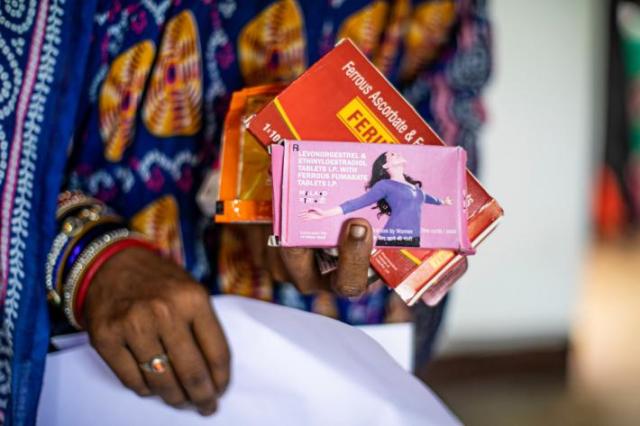New Delhi, 29 October, 2020: The ongoing Covid-19 pandemic seems to be derailing India’s journey towards stabilising its population. Let us understand how! There are enough evidence to prove that the pandemic is disrupting people’s already limited access to contraceptives and other family planning options which in turn will make India’s journey towards achieving one of the goals under Sustainable Development Goals (SDGs) set by the United Nations, even tougher.
Target 3.7 of the SDGs calls on countries "By 2030, to ensure universal access to sexual and reproductive health-care services, including for family planning, information and education, and the integration of reproductive health into national strategies and programmes"
Things were moving well towards achieving this goal, when the pandemic hit the world. Several estimates now underline the possible challenges posed due to the onset of Covid.
Guttmacher Institute’s recent estimates anticipate a 10% decline in use of reversible contraceptive methods in low and middle income countries that would result in an additional 4.9 Crore women with an unmet need for modern contraceptives and an additional 1.5 Core unintended pregnancies globally, over the course of a year.
In India too, Covid has hit reproductive healthcare services hard, and is likely to increase unmet need in the coming years, says a White Paper named "Meeting the Unmet Need: A Choice Based Approach to Family Planning" released by Population Foundation of India (PFI), a New Delhi based non-profit. The white paper was released on the occasion of World Contraception Day which was observed on September 26.
The paper provides details of a comparative analysis of NHM’s Health Management Information System (HMIS 2020) data from April-June 2020 with April-June 2019. The comparative analysis reveals that contraceptive distribution and uptake decreased significantly during the COVID–19 lockdown period.
What changed during the Pandemic, according to the analysis?
- 86% drop in male sterilisation and 73% drop in female sterilisation
- 50% drop in the use of interval, 19% in postpartum, and 28% in post-abortion IUCD
- 43% reduction in the use of injectables
- 21% drop in OCP and condom distribution, each, and
- 59% drop in Centchroman (weekly) pill distribution.
- The impact of this interruption is positioned to negatively affect India’s reproductive health indicators in the years to come, it says.
As per the Foundation for Reproductive Health Services–India report (2020), the inability to access contraceptives is likely to result in an additional 2.38 million unintended pregnancies, 679,864 live births, 1.45 million abortions (including 834,042 unsafe abortions) and 1,743 maternal deaths.
India has made significant progress regarding minimising the unmet needs of access of contraceptives. The efforts made by the government for decades under the umbrella of the family planning programme have significantly contributed to India’s progress toward stabilising its population and strengthening the provision and delivery of family planning services. The pace of India’s population growth has steadily slowed down and there has been a decline in fertility rate. According to the NFHS–4, the Total Fertility Rate (TFR)– that is, the average number of live births a woman would have in her life as she passes through her child bearing years–decreased from 3.4 in 1992-93 to 2.2 in 2015-16, just a little over replacement level fertility of 2.1, at which India’s population would exactly replace itself from one generation to the next. The decadal growth rate also reduced: from 21.5 per cent in 1991-2001 to 17.7 per cent during 2001-2011.
However, the ongoing pandemic has potential to derail India’s journey of stablising the fertility rate and also the population, says the white paper which goes on suggesting few recommendations for the government, if it is really serious about the emerging crisis at this front.
Its recommendations
- Strengthen Quality of Care and Strengthen Family Planning Counselling
- Expand the Basket of Contraceptive Choices
- Social and Behavioural Change Communication (SBCC) for Enhancing Community Involvement and Partner Engagement:
- Sexual and Reproductive Health and Rights for Young People:
- Prioritise Family Planning and Reproductive Health Services in Emergency Situations:
- Increase Investment in Family Planning








.jpg)










